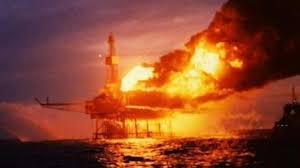The Tragic Piper Alpha Disaster: Causes and Consequences

Introduction
The Piper Alpha disaster, which occurred on July 6, 1988, is regarded as one of the deadliest industrial disasters in history. This catastrophic event unfolded on the Piper Alpha oil platform, located in the North Sea, and tragically led to the loss of 167 lives. The significance of this disaster extends beyond its immediate human toll; it spurred significant changes in safety regulations and emergency response procedures within the oil and gas industry.
Details of the Disaster
The Piper Alpha platform, operated by Occidental Petroleum, was a prominent oil production site. On the fateful night of the disaster, a routine maintenance operation was being conducted, which involved the removal of a pump. Unfortunately, this operation was fraught with oversight. A failure to properly communicate the maintenance status led to a series of catastrophic events. At approximately 10.00 PM, a gas leak ignited, leading to a massive explosion that engulfed the platform in flames.
The ensuing chaos claimed the lives of 167 individuals, many of whom were able to escape the inferno but succumbed to smoke inhalation and injuries. Additionally, the disaster caused the destruction of the platform and significant environmental damage in the North Sea. The aftermath magnified the need for stringent safety measures in offshore drilling operations.
Impact and Lessons Learned
The Piper Alpha disaster had a profound influence on safety standards within the oil and gas industry. In the years following the incident, investigations, including the public inquiry led by Lord Cullen, identified numerous failings in safety practices and emergency response protocols. The inquiry’s findings prompted the introduction of new safety regulations, including the emphasis on safety management systems and risk assessment protocols.
Furthermore, the disaster highlighted the critical importance of effective communication during emergency situations, encouraging the industry to develop more robust training programs for personnel. The organization of emergency response teams and mock drills became standard practice to ensure preparedness for such incidents.
Conclusion
The Piper Alpha disaster remains a stark reminder of the potential dangers associated with offshore oil production. Its legacy is an ongoing commitment to improving safety standards and maintaining vigilant oversight in the industry. As climate policies evolve and energy demands change, the lessons learned from Piper Alpha continue to shape regulations, aiming to prevent similar tragedies in the future. Readers should recognise that safety in industrial operations should remain a top priority, reflecting the dire need to protect lives and the environment.









